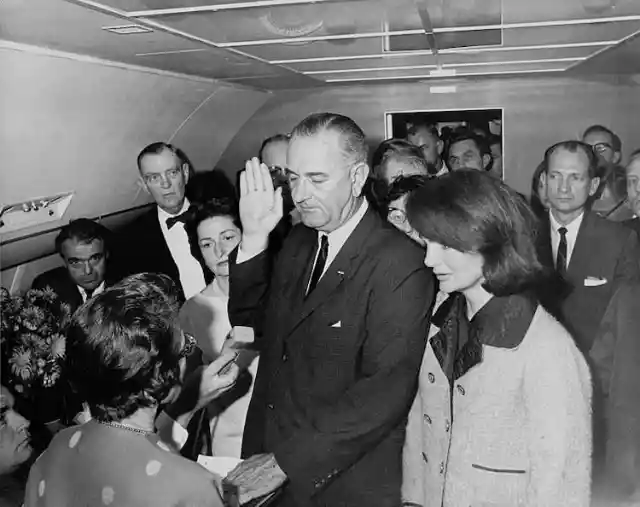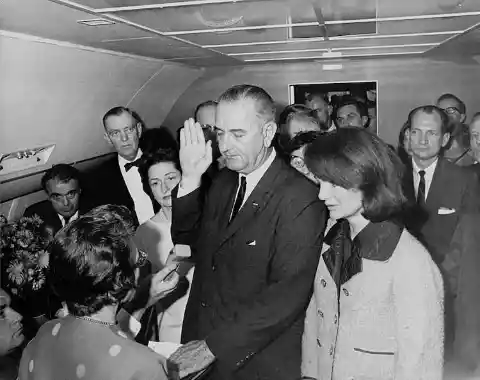Vice President Acting President
Pop quiz: What is the 25th Amendment to the U.S. Constitution? It’s okay, there are lots of people who don’t know. Changes, or amendments, to the U.S. Constitution, are not undertaken lightly. That being said, it might be surprising to know that there are so many amendments.
The 25th Amendment is more recent, having only been ratified by the Constitution in 1967, and deals with rules of succession. Who becomes President if the elected President is no longer able to perform their duties? And more importantly, what are the terms of passing the duties onto another?


Prior to the ratification of the 25th Amendment, individual Presidents decided what constituted “incapacitation” and who would take over for them. The first time this would come into play was in 1841 when President William Harrison became the first to die while in office. His Vice President, John Tyler, took over with the title of “Vice President Acting President”. Apparently not liking the “ring” to that name, he took it upon himself to move into the White House, swear himself in, and even give an Inaugural Address. Needless to say, this caused a bit of a commotion since it was so unorthodox, but not quite enough commotion to mix permanent written procedures into the makeup of the Constitution at the time.
What Now?


The next time an issue with a successor would rear its ugly head would be 80 years later, in 1921. When President Woodrow Wilson suffered from a series of strokes that rendered him unable to lead the nation, Wilson’s wife and doctor attempted to hide the seriousness of his condition from the rest of the country, leaving it without any recognized leadership at the time—not the safest idea.
Later, when President Eisenhower would suffer a similar fate, he instructed Richard Nixon to decide whether Eisenhower was incapacitated and to take over as President. This appointment wasn’t exactly legal, but Nixon was allowed to act as President in Eisenhower’s stead without ever being officially sworn in. Again, not ideal.
Alright, Already


Finally, with the tragic assassination of President John F. Kennedy in 1963, Congress decided something more concrete must be put in place. It was unclear at the time who would lead the nation, as Vice President Lyndon B. Johnson was also severely injured.
Even so, it still took two years to put an emergency action plan on the official records. Two more years would pass before Congress forwarded a resolution to pass the 25th Amendment into law. This came just in time because the first time the 25th Amendment would be invoked just six years later, in 1973. Spiro Agnew resigned from the office of the vice president, and Richard Nixon nominated Gerald Ford to be his replacement. Less than a year later, Nixon would resign amid the infamous Watergate scandal and the 25th Amendment would again come in handy to install Ford as his replacement for President. Ford would then nominate Nelson Rockefeller as Vice President.
The Pot Stirrer
While the 25th Amendment is pretty straightforward, there is one portion, Section Four, that occasionally causes a bit of discord.
Section Four stipulates:
“When the Vice President and a majority of a body of Congress declare in writing to the President pro tempore of the Senate and the Speaker of the House that the President is unable to perform the duties of the office, the Vice President immediately becomes acting President.”
Issues arise with the ambiguous phrase “the President is unable to perform the duties of the office.” Many would argue that perfectly healthy Presidents have failed to perform their official duties properly. In 1987, Ronald Reagan’s staff suggested that Section Four be invoked as many of them charged him with being “inattentive, distracted, lazy and inept.” With the suggestion of the use of Section Four, Reagan promptly appointed a new Chief of Staff, who of course deemed Reagan completely fit for office. With President Reagan being diagnosed with Alzheimer’s later in life, maybe the staff wasn’t being unduly vindictive after all.
Naturally, the authors of the 25th Amendment only foresaw this clause coming into play due to health issues, not as a loophole for disgruntled staff members to oust their Commander in Chief.